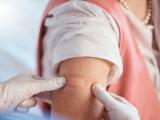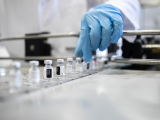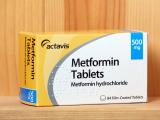Convalescent plasma given to hospitalized COVID-19 patients did not improve survival or rates of release from the hospital within 28 days, need for invasive mechanical ventilation, or death, according to the most recent findings of the Randomised Evaluation of COVID-19 Therapy (RECOVERY) trial in the United Kingdom.
The results, published late last week in The Lancet, add to evidence that SARS-CoV-2 antibody-rich plasma taken from COVID-19 survivors doesn't benefit severely ill coronavirus patients. The RECOVERY trial is evaluating several possible treatments for hospitalized COVID-19 patients at 177 National Health Services sites.
Death, mechanical ventilation, hospital release
The researchers assigned 11,558 patients to receive either convalescent plasma or usual care in a 1:1 ratio from May 28, 2020, to Jan 15, 2021.
There were no significant difference in 28-day death rates (24% in both groups; rate ratio [RR], 1.00) or in any patient subgroup, including those with no detectable SARS-CoV-2 antibodies at treatment assignment and those treated with convalescent plasma within 4 days after symptom onset.
Neither did convalescent plasma significantly affect the share of patients released from the hospital within 28 days (66% in both groups; RR, 0.99) or requiring mechanical ventilation after treatment assignment (29% in both groups; RR, 0.99). Median time to hospital release was 12 days in those who received convalescent plasma and 11 days in the usual-care group.
Similarly, no differences were observed in the use of ventilation, successful weaning from invasive mechanical ventilation, need for dialysis, or cause-specific death rate.
Severe allergic reactions occurred in less than 1% of both groups, and there were no differences in the occurrence of sudden worsening of respiratory status, fever, sudden low blood pressure, hemolysis (red blood cell rupture or destruction), abnormal blood clotting, or major heart rhythm abnormalities.
Nine patients in the convalescent plasma group had pulmonary reactions, including three possible transfusion-related deaths, and four patients developed fever, allergic reactions, or low blood pressure.
Patients were, on average, 63.5 years old, and the median time from symptom onset to study treatment assignment was 9 days. At randomization, 5% of patients were receiving invasive mechanical ventilation, while 87% were on supplementary oxygen (with or without noninvasive respiratory support), 8% required no supplementary oxygen, and 92% were receiving corticosteroids. Of the 83% of all patients with baseline serology results, 38% had no evidence of SARS-CoV-2 antibodies at treatment assignment.
Weighing costs, defining benefits
The authors noted the appeal of using convalescent plasma in seriously ill COVID-19 patients because it became available weeks after the emergence of the pandemic and its broad use for this purpose outside of clinical trials.
"Until now, there has been insufficient evidence from randomised trials to reliably assess its safety and efficacy," the authors concluded.
"In RECOVERY, the largest clinical trial of convalescent plasma for any infectious indication, we did not find evidence that high-titre convalescent plasma improved survival or other prespecified clinical outcomes in patients hospitalised with COVID-19. Whether convalescent plasma would benefit other patient groups is unknown and would need to be evaluated in other, adequately powered, randomised clinical trials."
In a commentary in the same journal, Sean Liu, MD, PhD, and Judith Aberg, MD, both of the Icahn School of Medicine at Mount Sinai in New York City, said that hospitalized COVID-19 patients with impaired antibody-mediated immunity may still benefit from convalescent plasma. But given plasma donors', blood banks', and medical teams' considerable investments in each convalescent plasma infusion, each one should be considered carefully as to whether it will provide any benefit.
"Future ambulatory trials with convalescent plasma might need to be matched against monoclonal antibody therapies or hyperimmune immunoglobulin, and eligibility criteria will need to tightly define the population most likely to benefit," Liu and Aberg wrote.
"Current and future studies are exploring the next class of COVID-19 therapeutics, including small-molecule antivirals, next-generation monoclonal and polyclonal antibody therapies, and immunomodulatory agents."




















